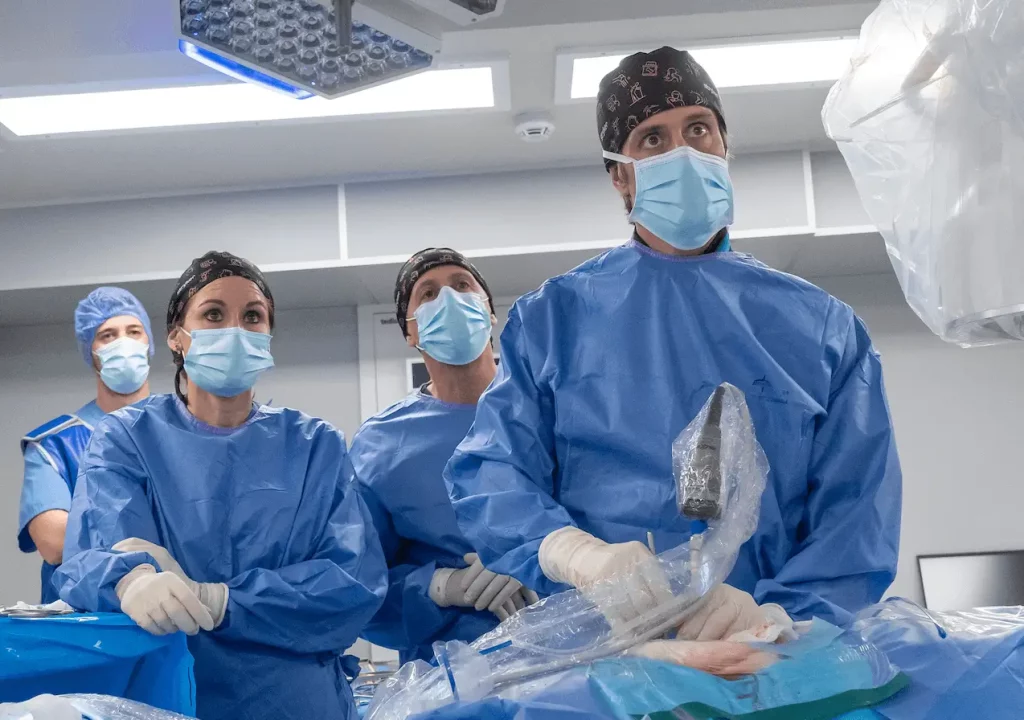Spine Revision Surgery: When It's Needed, How It's Done, and What to Expect
What is Spine Revision Surgery?
Spine revision surgery is a specialized procedure aimed at correcting complications, addressing prior surgical errors, or treating progressive spinal conditions that were not successfully resolved in a previous operation. This type of surgery is more complex than initial spine procedures, as it requires a comprehensive assessment of past interventions and a tailored surgical strategy to ensure long-term success.
At Complex Spine Institute, revision surgeries are handled by a multidisciplinary team led by Dr. Augusto Covaro and Dr. Vicenç Gilete — two of Europe’s foremost experts in minimally invasive and complex spinal surgery. With decades of experience in cranio-cervical, lumbar, and spinal deformity procedures, they have helped hundreds of patients find solutions after failed surgeries elsewhere.

When Is Spine Revision Surgery Indicated?
There are multiple reasons a patient might need revision surgery, including:
- Persistent or worsening pain after prior surgery
- Failed spinal fusion (pseudoarthrosis)
- Misplaced implants
- Degeneration of adjacent spinal segments
- Recurring disc herniation
- Ongoing spinal instability
- Unresolved spinal stenosis
- Postoperative infections
- Failed Back Surgery Syndrome (FBSS)
As Dr. Covaro explains, “Spine revision must be based on an extremely precise diagnosis and a comprehensive interpretation of imaging, symptoms, and the patient’s medical history. It’s not about repeating a surgery — it’s about understanding what went wrong and how to rebuild what has already been altered.”
Diagnosis: The True Key to Success
A critical factor in spine revision surgery is correlating clinical and radiological findings. Many patients referred to Complex Spine Institute arrive with outdated or inadequate imaging that fails to explain the surgical failure. Our protocol includes dynamic imaging (flexion, extension, and rotation), 3D CT scans, biomechanical evaluations, and updated MRIs. This rigorous diagnostic approach allows us to detect hidden instabilities or progressive injuries missed in earlier assessments.
According to Dr. Gilete: “Patients are often operated on with an incomplete diagnosis. Our approach links neurological symptoms, pain, and functional loss with image findings in multiple positions. That’s the foundation of justified revision surgery.”
How Is Spine Revision Surgery Performed?
The surgical approach depends on the reason for the failure and the type of previous procedure. At Complex Spine Institute, we prioritize minimally invasive techniques such as spinal endoscopy, lateral approaches (XLIF, OLIF), 3D navigation, and robotic-assisted surgery to reduce surgical trauma.
Depending on the case, procedures may include:
- Removal of previous hardware
- Repositioning of implants
- Completing an incomplete fusion
- Correcting progressive deformities
- Decompressing affected neural structures
Many revision cases involve combined strategies, such as an anterior approach for fusion and prosthetic placement followed by posterior stabilization.
Expected Outcomes
While outcomes vary depending on case complexity, our experience shows that well-planned revision surgery can result in significant functional recovery, pain reduction, and improved quality of life. The key is avoiding another failed procedure.
As our surgical team emphasizes: “A properly executed revision can transform a patient’s trajectory. But it requires precision, planning, experience, and advanced technology.”
Patients must understand that revision surgery is not about returning to square one — it’s about rebuilding a system that has already been modified. Personalized post-operative care and rehabilitation are essential for optimal recovery.
Common Conditions We Treat with Revision Surgery
Among the most common diagnoses we treat through revision surgery are:
- Incomplete lumbar fusions after spinal arthrodesis
- Recurrent disc herniation at L4-L5 or L5-S1
- Persistent stenosis after partial decompression
- Progression of scoliosis in patients with partial fixation
- Undiagnosed secondary cranio-cervical instability
- Screw migration or prosthesis loosening
All these conditions have been treated by Dr. Gilete and Dr. Covaro’s team with excellent outcomes, restoring patients’ function and autonomy.
Are You a Candidate?
If you’ve had spinal surgery and continue to suffer from pain, neurological symptoms, or limited function, you may be a candidate for a spine revision evaluation. Complex Spine Institute offers thorough case reviews both in-person and through international teleconsultations. Our multilingual team (English, Spanish, French, German) guides patients through every step, including diagnostic coordination in Barcelona or their home country.
Request your no-obligation medical evaluation. Our team will assess your case and propose a realistic and personalized solution
Why Choose Complex Spine Institute?
Because we are international leaders in complex and minimally invasive spinal surgery. Because we leverage cutting-edge technology from virtual planning to robotic-assisted procedures. And because every patient receives a customized surgical plan not just to correct previous failures, but to prevent future ones.
As Dr. Covaro states: “Many of our patients have seen multiple specialists and centers. We don’t just offer a solution — we offer a second chance.”